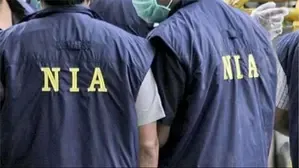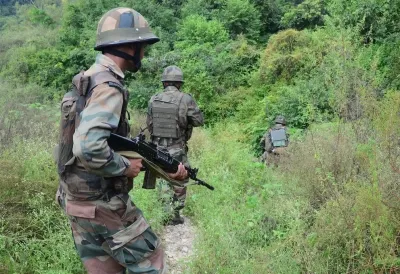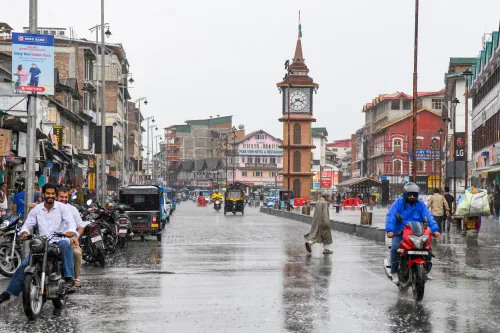NIA Court Imposes Sentences on Four in Multi-State Counterfeit Currency Case Linked to Bangladesh

Synopsis
Key Takeaways
- Four sentenced in a multi-state counterfeit currency case.
- Seizure of 203 counterfeit notes worth Rs 4.78 lakh.
- Key accused Karim Shaikh remains absconding.
- NIA's investigation revealed a cross-border network.
- Convictions under Sections 489B, 489C, and 120B of IPC.
New Delhi, April 8 (NationPress) A special court of the National Investigation Agency (NIA) has sentenced four individuals to rigorous imprisonment (RI) in connection with a 2018 fake Indian currency note (FICN) case that has cross-border ties with Bangladesh.
The NIA special court convicted two of the defendants on Monday, followed by the other two on Tuesday. This case is associated with the seizure of 203 counterfeit Indian currency notes (FICNs) valued at a total of Rs 4.78 lakh. These notes were confiscated from five individuals at a paan shop near Sai Dhaba in Wadape, Bhiwandi, located in Thane district, Maharashtra, in October 2018.
Local authorities apprehended five individuals following the discovery of the counterfeit currency. The suspects were identified as Rehan Abbas Shaikh, Shafahad Mukhtar Ansari, Anees Iklakh Shaikh, Kishor Namdeo Fular, and Rohit Nagendra Singh. The NIA assumed control of the investigation in December 2018, leading to the arrest of four additional suspects: Samir Mandal, Sabir Ali, Abdul Kadir, and Mohammad Shadab Khan. A total of nine individuals faced charges filed by the NIA between January 2019 and April 2021.
Among the arrestees, Rehan Shaikh, Shafahad Ansari, Rohit Singh, and Abdul Kadir had previously entered guilty pleas. On Monday, two accused, Samir Mandal and Mohammad Shadab Khan, received sentences of 7 years and 5 years of rigorous imprisonment, respectively. They were convicted under Sections 489B, 489C, and 120B of the Indian Penal Code (IPC) and fined Rs 10,000 for each section, with additional prison time in case of default.
On Tuesday, two more suspects, Anees Iklakh Shaikh and Kishor Namdeo Fular, were sentenced to 5 years and 9 months of rigorous imprisonment, alongside fines of Rs 10,000 each, under the same sections, with provisions for further imprisonment in case of default.
Karim Shaikh, a national from Bangladesh, is identified as the main accused in this case but remains at large. Ongoing investigations are delving into his involvement in the international FICN racket, which extends across Bangladesh, West Bengal, Maharashtra, and various regions of India.
The NIA has reported that the accused were engaged in the distribution of counterfeit currency notes throughout several Indian cities. They frequently purchased minor items at highway shops, using fake notes in Rs 2000 denominations and requesting the shopkeepers to provide change. The conspiracy was orchestrated by Anees Shaikh from Mumbai and Samir Mandal from West Bengal. Another accused, Abdul Kadir, facilitated coordination and procurement of the counterfeit currency from Karim Shaikh across the Bangladesh-India border, delivering it to Samir Mandal through his brother Sabir Ali.
Investigations revealed that Samir Mandal and Anees Shaikh collaborated closely, with Anees instructing Mohammad Shadab Khan to collect FICNs from Kolkata. Anees also enlisted Rehan Shaikh and Kishor Fular, residents of his neighborhood, to disseminate the fake currency across India with the help of Shafahad Ansari and Rohit Singh. During the conspiracy period in 2018, Abdul Kadir maintained contact with Karim Shaikh and other Bangladeshi nationals via mobile phone.









